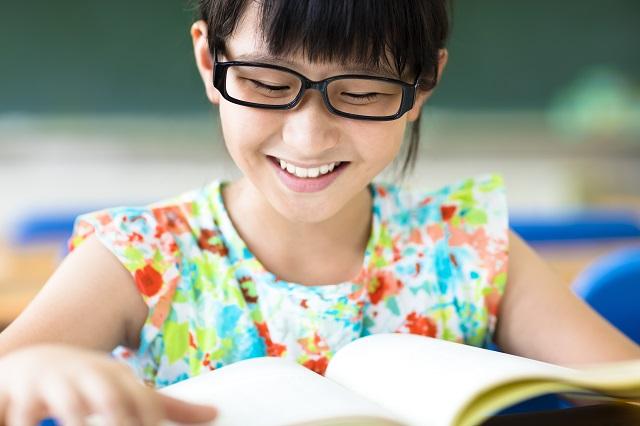【陳慧珊】有一種教育,叫學習做決定 (38) 做好本份
2017-09-13

每當我的女兒問我,為甚麼她必須要做些連朋友都未必會欣賞的事情時,我會提醒她:「你只需做好本份」,以安撫她焦慮和不情不願的心情。因為當我們負責任和恰如其分地辦事,不單單是尊重自己,還是盡了公民責任。
說到自我尊重,我常常提醒女兒,我們不能阻止別人對我們的一舉一動評頭品足。但只要做的事情是對的,那麼我們就應該從一而終、本著道德責任完成。要知道,我們不能太介懷別人是否認同、欣賞或喜歡自己。只要我們盡了責任,且是懷著良好動機來做事,人們自然會明白的。即使他們當下不理解,假以時日,他們終歸會明白。又或者他們一輩子都不會明白我們的用心,那就由他吧。反正去到最後,我們也會因為知道自己完成了本份而感覺良好。
負責任會使我們更懂得如何自愛。欣賞自己抱著責任心而做的決定,可以讓我們認識自己、學懂自愛,繼而將這份美德感染他人。
因此,我也會告訴我的女兒,在我們履行自己職責的過程當中,我們也需要考慮其他人的感受。
畢竟我們做的事可能與其他人做的事情有關,若只顧自己的部分,或會影響整件事。我們盡力做自己的部分,將有助於整個群體的和諧。
我的女兒啊,這是一個告訴自己「做好本份」並非單純因為「有必要」的提醒。請時刻謹記對親人、朋友或社區作出恆常奉獻,也是公民責任的一部分。
而在我們「做好本份」和決定如何實行前,我們也應該考慮別人的感受和需要。
然而,我們很自然會因為在生理和心理上追求效率,而忘記顧及自己的感受。在作出決定前,我們會忘記考量他人的感受—繼而使自己不得不努力暫停一刻,去好好感受,讓我們作出最適合群眾的決定。
「做好本份」可以是由直覺、道德責任、信仰、價值、良好的動機和自身經歷所驅使的。但不幸地,絕大部分人在「做好本份」前,都無法於商榷的過程中摒棄意見和批評。不過,通過不斷練習和接受教育,或許也能使這個持續進行的「做好本份」過程變得輕鬆和愉快,而非充斥著諷刺、挫折和憂慮。
我期望自己在做好為人父母的本份、和女兒分享「做好本份」之好處的同時,也可以盡本份來當一個負責任的市民。我相信只要能夠獨立地完成本份,所有人也有能力去貢獻社會、用自己微小但顯著的方法來改變社會。
當父母努力替孩子找到正確的方向時,其實孩子們也會自行發掘出繼續走往正確路向的理由。我有信心,當他們發現真正的自豪感,是源於自己願意憑道德良知、正直感、同情心和服務心而辦事,亦會因此被激勵去繼續「做好本份」。
Decision Making is Educational
“Doing Our Part”
Whenever my daughter asks me why she needs to do certain things when her friends may not even appreciate it, I’d adjust her unwillingness or anxiety by reminding her to “just do your part.” Because when we do what’s appropriate and responsible, it’s from a place of self-respect as well as responsible citizenship.
Regarding self-respect, I’d share with my daughter the idea that we can’t control how other people will react to our gestures, but if it’s the right thing to do, then we need to do it out of a moral obligation to ourselves. We can’t worry too much about whether others will agree with us, appreciate us, or like us more. If things are done with good and responsible intentions, people will “get it”. And if they don’t “get it” at this instant, they may “get it” at some point in the future. Or if they never “get it”, so be it. Because in the end, it will make us feel good knowing that at least, we did our part.
Being responsible will add to our repertoire of good deeds towards self-love. By loving the empathetic decisions that stem from our responsible intentions, we will love how those resulting actions will make us feel about ourselves. And from that place of healthy self-love, we would have the capacity to take control of how we want to spread goodness to others.
Therefore, I’d also tell my daughter that while we need to “do our part” out of self-obligation, that we also need to consider others in the process.
After all, a part belongs to a whole. If we “do our part” we could influence the impact of the whole. More exactly, doing our part on an individual level will contribute to the goodness and harmony of the whole community, in which we are a part of.
To my daughter, that’s a reminder to “do our part” not only for reasons in and of itself, but to keep in mind that it is also part of our civic responsibility as a daily service to our family, friends and/or community.
Moreover, before we “do our part” we should consider others’ feeling and needs before we decide how to carry out our part of the whole.
However, it’s become so natural for us to be in constant movement physically and mentally towards productivity that we miss the stillness of feeling. We forget to feel how others may feel before we make a decision — making a deliberate effort to stop for a moment to feel brings us to the level of empathy, so that our decisions could reflect what’s best for collective well-being.
“Doing our part” could be guided by our instincts, moral obligations, beliefs, values, good intentions, and experience. Unfortunately, most of us cannot remove opinion and judgment in our deliberations before “doing our part”. However, with practice and education, perhaps this on-going process of “doing our part” will eventually come with ease and joy, rather than sarcasm, frustrations or worry.
I hope that by doing my part as a parent and sharing with my daughter the benefits and goodness of “doing our part”, that I’m also “doing my part” as a responsible citizen. I believe that we can all contribute to making a difference in our own small yet significant way, as long as we empower ourselves to “do our part” individually.
While we strive as parents to set our children in the right course, our children will eventually find their own inner reason to continue in the right path. I have faith that they will be motivated to keep “doing their part” when they discover the genuine pride that comes when we act within the realm of moral conscience, integrity, empathy and service.
